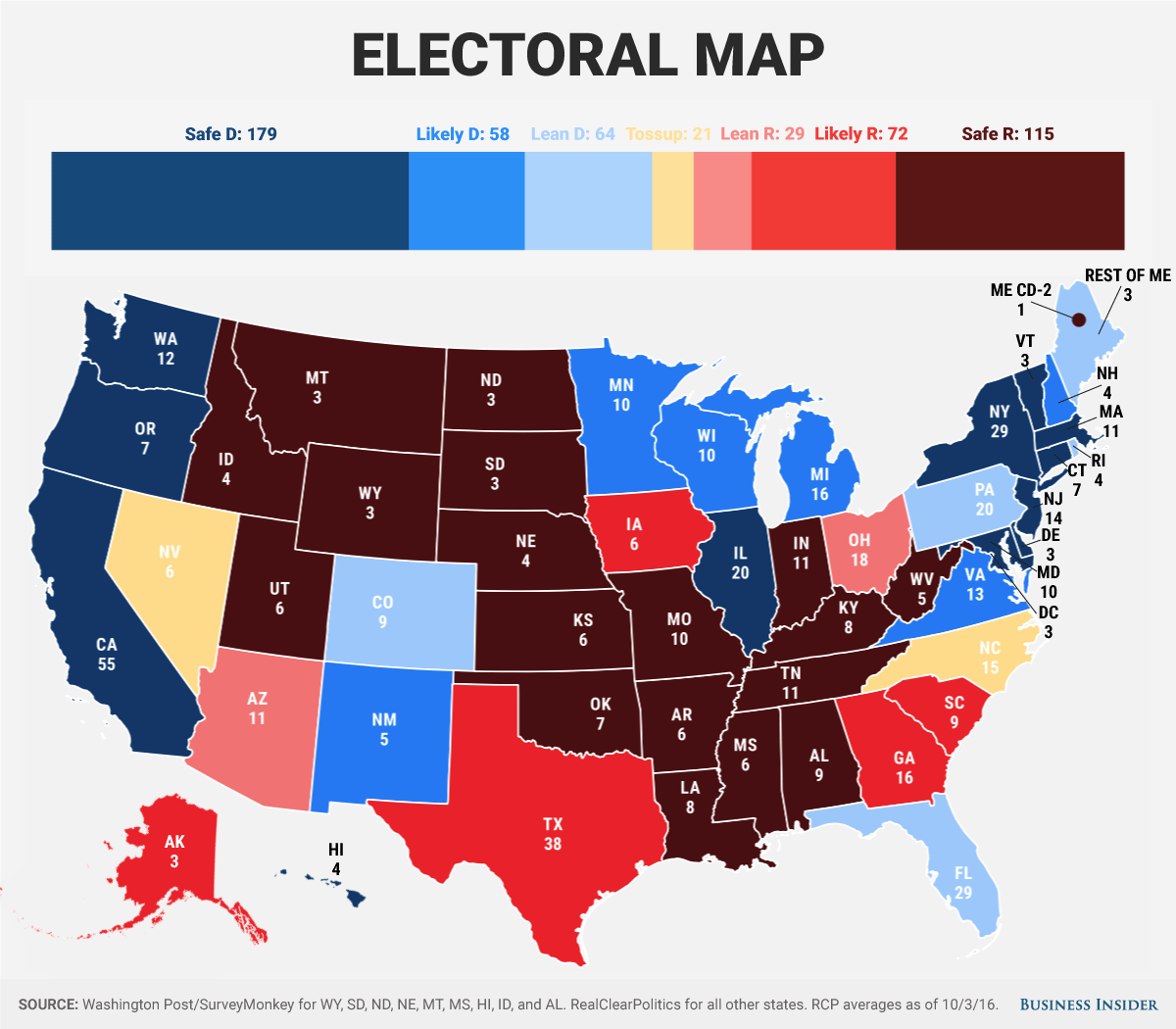With less than 35 days to go until Election Day, Democratic presidential nominee Hillary Clinton has a sizable lead over Republican nominee Donald Trump in the Electoral College – but the lead is nowhere near big enough to call the election over just yet.
Using polling data from RealClearPolitics and Washington Post/Survey Monkey, Business Insider found that Clinton, as of this week, led Trump by 237 to 187 in states that were either safe or likely bets to go in favor of each party’s nominee.
Our findings are outlined in the map above. Business Insider judged that a safe state was anywhere in which a candidate led by at least 8 points, while a likely state was anywhere in which the nominee held a 4- to 8-point lead.
When states that leaned toward a candidate were factored in, Clinton held a 301-to-216 advantage over Trump, enough to secure the presidency. States that were considered to lean in favor of Clinton or Trump were those in which either candidate held a 2- to 4-point lead.
The tossups, any state where the major-party nominees held a lead of less than 2 points, consisted of 21 electoral votes. Clinton held very slight leads in North Carolina and Nevada.
In comparison with 2012, Trump has flipped Ohio and Iowa from blue to red and is locked in a virtual tie in Nevada. Pennsylvania, Colorado, and Florida look to be tougher to flip, but should Trump do so, the election would be his.
Clinton needs to win just two out of these four key states: Ohio, Florida, North Carolina, and Pennsylvania. That would give her enough electoral votes to secure the presidency, even if Colorado and Nevada should turn from blue to red.
As of now, that "blue wall" is holding up. Clinton is ahead in three of those four states, though her leads in the RealClearPolitics polling averages were less than 3 points in North Carolina, Pennsylvania, and Florida, as of Monday.
Clinton and Trump are set to face off Sunday in the second of three presidential debates. The first, which Clinton was roundly seen to have won, has helped her take back or expand leads in several of these swing states.
